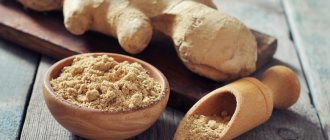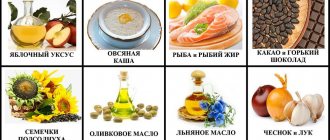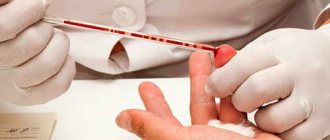Blood is the fluid that provides life to the body. It consists of plasma, erythrocytes (red blood cells), platelets and leukocytes. When the blood thickens, which signals problems in the body - from hypovitaminosis to stress, the heart, other organs and tissues do not receive oxygen and nutrition on time. Blood that is too thick forces the heart to work harder and can lead to hypertension, blood clots, clogged blood vessels, hemorrhages and death.
There are many foods that can naturally thin the blood and help reduce the risk of blood clots, and here are 10 of them.
Ginger
Ginger
Ginger is an anti-inflammatory spice that thins the blood. It contains a naturally occurring acid called salicylate. Aspirin (acetylsalicylic acid), which is recommended to be taken to thin the blood, is a synthetic derivative of salicylate. For the anticoagulant effect of natural salicylates, you can regularly eat fresh or dried ginger, adding it to baked goods, drinks, and a variety of dishes. But, of course, this natural anticoagulant is not as effective as blood thinners.
Severity of pathological processes
After each drink, the blood thins with further thickening, as well as the expansion and contraction of blood vessels, which has an extremely negative effect on the condition of the body.
You can reduce the negative effects of alcohol by drinking diuretics or drinking plenty of fluids.
Complete breakdown of alcohol occurs within 5–36 hours. Alcohol is metabolized in the liver (90%), where it is neutralized with the help of enzymes. The remaining amount (10%) is excreted through the kidneys during urination, lungs and skin.
The strength of the effect of ethanol on the processes of thickening and thinning the blood depends on the concentration of alcohol in it, which, in turn, is influenced by:
Type of alcoholic drink
Despite the existing opinion that the highest concentration of alcohol in the blood is achieved by drinking strong drinks, it is not entirely true.
The fastest penetration into the bloodstream is observed in drinks of medium strength (alcohol content up to 30%): wine, punch, mulled wine. While drinking strong drinks (vodka, cognac, whiskey) has an irritating effect on the stomach, which delays the opening of the pyloric valve, the entry of the drink into the duodenum and its absorption.
Interesting: beer (350 ml), unfortified wine (120 ml) and port wine (40 ml) contain up to 10 g of ethyl alcohol, and vodka (500 ml) – 200 g.
Drinking speed
A short break between drinks and drinking a large amount of alcohol will lead to a higher concentration of alcohol in the body and more obvious symptoms of intoxication, compared to drinking alcohol slowly in small doses.
Consequently, drinking alcohol for a long time in small doses has a less harmful effect on the circulatory system.
Eating
Drinking an alcoholic drink on an empty stomach penetrates the blood faster, which leads to an increase in the concentration of alcohol in it.
Fatty foods increase the absorption time of alcohol by 6 times. Fat milk, drunk before a feast, or mashed potatoes will significantly reduce the rate of penetration of alcoholic beverages into the blood, which will reduce its negative impact.
Body mass
The human body is 2/3 water, in which alcohol is evenly distributed as it enters. The larger a person is, the more water is contained in his body and the lower the concentration of alcohol in him.
Excess weight in a person, caused by fat deposits, indicates less fluid compared to a person with a muscular physique. The dissolution of ethanol in fat occurs more slowly than in a liquid medium, which contributes to a higher concentration of alcohol in the blood in obese people compared to muscular athletes, when they drink alcohol in the same amount.
Consequently, the concentration of ethanol in a woman’s blood will be higher if she drinks the same amount of alcoholic beverages as a man of equal weight.
Olive oil
Olive oil
Consuming olive oil at least once a week reduces platelet activity, thanks to the antioxidants contained in the oil. The study found that people who consumed extra virgin olive oil, which is high in phenolics, had lower levels of blood clot-promoting substances. Just don’t heat-treat olive oil, as it loses its beneficial properties. Add it to salads, sauces, dip bread in it.
How does it affect the circulatory system?
Garlic is good for blood vessels and has a complex effect on the entire cardiovascular system. Its main property is lowering cholesterol levels. And this is facilitated by phytoncides, allicin and achoene, which slow down the process of cholesterol. By the way, they help strengthen the immune system.
Achoen also has an anticoagulant effect. The effect is no worse than from Aspirin. All this helps minimize the likelihood of blood clots. Moreover, heat treatment does not reduce the benefits of garlic. That is why it should be added to most main dishes as a regular seasoning.
How else does garlic affect the cardiovascular system? Several key effects can be identified:
- Reduces the likelihood of a heart attack. And this is achieved by increasing psycho-emotional resistance to stress - this is also facilitated by phytoncides that accelerate the production of serotonin.
- Partially dissolves cholesterol plaques. Accordingly, at an early stage of their formation, growth and subsequent thrombosis can be completely stopped.
- Normalizes blood pressure (slightly reduces). This will be especially useful for hypertensive patients and chronic migraine patients.
Also check out the infographic:
Fish
Salmon
Fatty sea fish can help in the fight against blood clots. Do not be afraid of this fat - due to its high content of omega-3 polyunsaturated fatty acids, it only brings benefits: platelets lose the ability to adhere to each other, the process of their accumulation in the vessels is suppressed, the blood thins and blood clots dissolve.
To achieve this effect, you need to eat about half a kilo of sea fish a week, preferably wild, but almost all salmon today are raised on aqua farms and do not “fed up” much omega-3. Unfortunately, fish is the only source of those omega acids that help thin the blood. Therefore, if you cannot eat fish often, add natural fish oil or seaweed oil to your diet. The latter is equivalent in omega index to cooked fish - after all, fish synthesizes omega acids from algae.
What can you eat during pregnancy
During pregnancy, active hormonal changes occur in the female body, which can become an impetus for the formation of blood clots. Blood viscosity in pregnant women is often increased. Therefore, such problems as varicose veins, thrombophlebitis, thrombosis, etc. are relevant for them.
Even those diseases that occur latently in a woman can worsen during pregnancy, which is associated with a deterioration of immunity. This is especially true for cardiovascular pathologies.
The legs suffer from thrombophlebitis and varicose veins first of all. After all, the load on them increases incredibly. If before pregnancy a woman had prerequisites for varicose veins, then after pregnancy the disease can develop very quickly. Sometimes such serious complications as thrombophlebitis occur.
Taking most medications during pregnancy is prohibited, so doctors recommend that women follow a menu aimed at thinning the blood. The basis of the diet should be vegetables, fruits and vegetable oils. Be sure to drink enough liquid, but only in the volumes recommended by doctors. Otherwise, the load on the kidneys will increase, which can be no less dangerous than blood thickening.
A pineapple
Pineapple baked with pepper, recipe here
The tropical fruit contains a special protein-breaking enzyme, bromelain, which is considered an effective remedy for cardiovascular diseases and high blood pressure. Research shows that bromelain can thin the blood, break up blood clots, and reduce their formation—include pineapple in your diet if you want to prevent thickening of your hair. Bromelain also has anti-inflammatory properties.
Contraindications
Like any alcoholic drink, beer has a number of contraindications. To avoid harm to health, they must be taken into account.
- Age up to 18 years. The body of children and adolescents is categorically incapable of accepting alcohol of any strength: it will harm them even more than adults.
- Pregnancy and lactation . Contrary to existing opinion, even natural, live beer is unsafe for mother and child.
- Elderly age . Starting from the age of 65, doctors recommend no more than 250 ml of drink per day.
- Drivers and operators of various types of machines. Any alcohol significantly reduces the reaction, which can lead to injury and even worse outcomes.
- Alcoholism in the past. With this diagnosis, you cannot resume drinking alcohol.
- Immunity to intoxication. Despite the fact that outwardly a person may not succumb to intoxication, his body, in particular the heart and blood vessels, will suffer in the same way as that of a quickly intoxicated person. As a result, there is a danger of significantly exceeding the dosage.
- Having many medical diagnoses. In case of diseases of the nervous system, serious pathologies of the heart and blood vessels, drinking alcohol is impossible.
Cassia or cinnamon
Spicy cassia
Some blood thinners are made with a substance called coumarin. Coumarin is found naturally in cinnamon. By the way, Chinese cinnamon or cassia has a much higher coumarin content than regular cinnamon. Add small amounts of the spice daily when preparing foods and drinks, but be careful if you use other natural blood thinners.
Passage of alcohol through the body
The weak polarization of ethyl alcohol molecules allows it to easily penetrate cell membranes. The substance begins to be absorbed in small quantities in the oral cavity and esophagus, in moderate quantities in the stomach and colon, but mainly in the small intestine.
Alcoholic drinks do not have any effect on the circulatory system when inhaled or penetrated through the skin
Garlic
Garlic
Garlic has natural antibacterial and antimicrobial properties, as well as anticoagulant activity and reduces the formation of blood clots. The best way to reap the benefits of garlic is to crush the cloves with the flat of a knife to “release” the beneficial compounds, then eat the cloves raw or quickly roast them in the oven.
Sea kale
Sea kale salad, recipe here
Sea kale (aka kelp) and other types of algae are natural anticoagulants, thanks, among other things, to the large amount of iodine they contain. Including seaweed in your menu may benefit people with high blood pressure by increasing vascular tone and reducing blood viscosity.
Water
Water is the main fighter against thick blood
If you don't drink enough water, dehydration sets in, which can cause your blood to thicken, increasing the risk of a blood clot. On average, you need to drink two liters of water a day, but no less. One way to check if you're on the right track is to test your urine. If it's pale yellow or clear, you're probably drinking enough, but if it's amber or darker, you need to increase your daily water intake.
Of course, people with certain medical conditions, such as congenital heart defects, may need blood thinners to reduce their risk of heart attack or stroke. If you have any health concerns, you should consult your doctor before introducing these foods into your daily diet, as they may interfere with some medications.
Why does the blood become thick?
Prolonged dehydration of the body will negatively affect the thickness of the blood. Dehydration is a consequence of nutritional disorders, chronic vitamin deficiency, insufficient fluid intake, bad habits, stress and diseases of the digestive system.
Drinking alcohol causes severe dehydration of the body, as well as poisoning by the breakdown products of ethyl alcohol. The blood becomes thicker, which is the basis for the development of diseases such as heart attack and stroke. Smoking also contributes to pathological changes occurring in blood vessels, increasing the risk of developing atherosclerosis.
Eating low-quality and unhealthy foods, as well as daily stress, contribute to blood thickening and increase the risk of blood clots. Enzyme deficiency aggravates disturbances in digestive processes and leads to an increase in blood viscosity.








